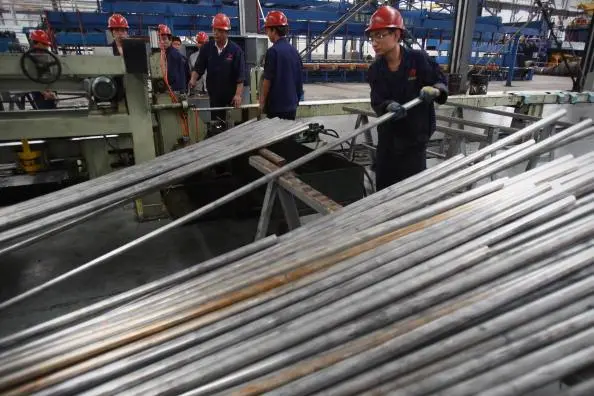PHOTO
Curbs on power use imposed by China have cut around 7% of domestic aluminium annual capacity so far this year, consultancy Wood Mackenzie said on Friday.
In one of the first comprehensive studies on the impact of China's energy crunch on its mammoth metals sector, the world's largest, Wood Mackenzie estimated copper has been less severely affected, though consumption would likely be impacted in first-half 2022 if power rationing measures become more extreme.
"We identified around 3.2 million tonnes per annum (of aluminium) capacity was cut so far this year, of which only a little has been restarted," Wood Mackenzie said.
"We also expect more (aluminium production) suspensions in Yunnan (province) in the fourth quarter as the impact of insufficient hydropower supply has been exacerbated by the dry season."
China has been restricting electricity consumption of highly energy-intensive sectors to reduce carbon emissions and reserve electricity for residents ahead of the winter.
Power cutbacks at copper smelters and refineries have trimmed around 60,000 tonnes of refined output, or less than 1% of China's total production capability, said Wood Mackenzie's managing consultant Yong Cheng Zhao in a report.
The restrictions also hurt output of some copper wire rod and tube producers, and downstream wire and cable makers, said consultant Zhifei Liu.
Although power shortages extended into the fourth quarter, energy cutbacks are not as severe as in September. Occasional power rationing could last until the second quarter of 2022.
The power restrictions have cut 850,000 tonnes of stainless steel melt output and 35,000 tonnes of nickel in nickel pig iron (NPI) output, and reduced 2021 nickel consumption by 111,000 tonnes, Wood Mackenzie said.
For lead, power supply constraints impacting smelters in Yunnan, Guangxi and Hunan will result in 50,000-60,000 tonnes of lost production, it added.
(Reporting by Mai Nguyen in Hanoi; Editing by Kenneth Maxwell) ((mai.nguyen@thomsonreuters.com; +842438259623; Reuters Messaging: mai.nguyen.thomsonreuters.com@reuters.net))





















